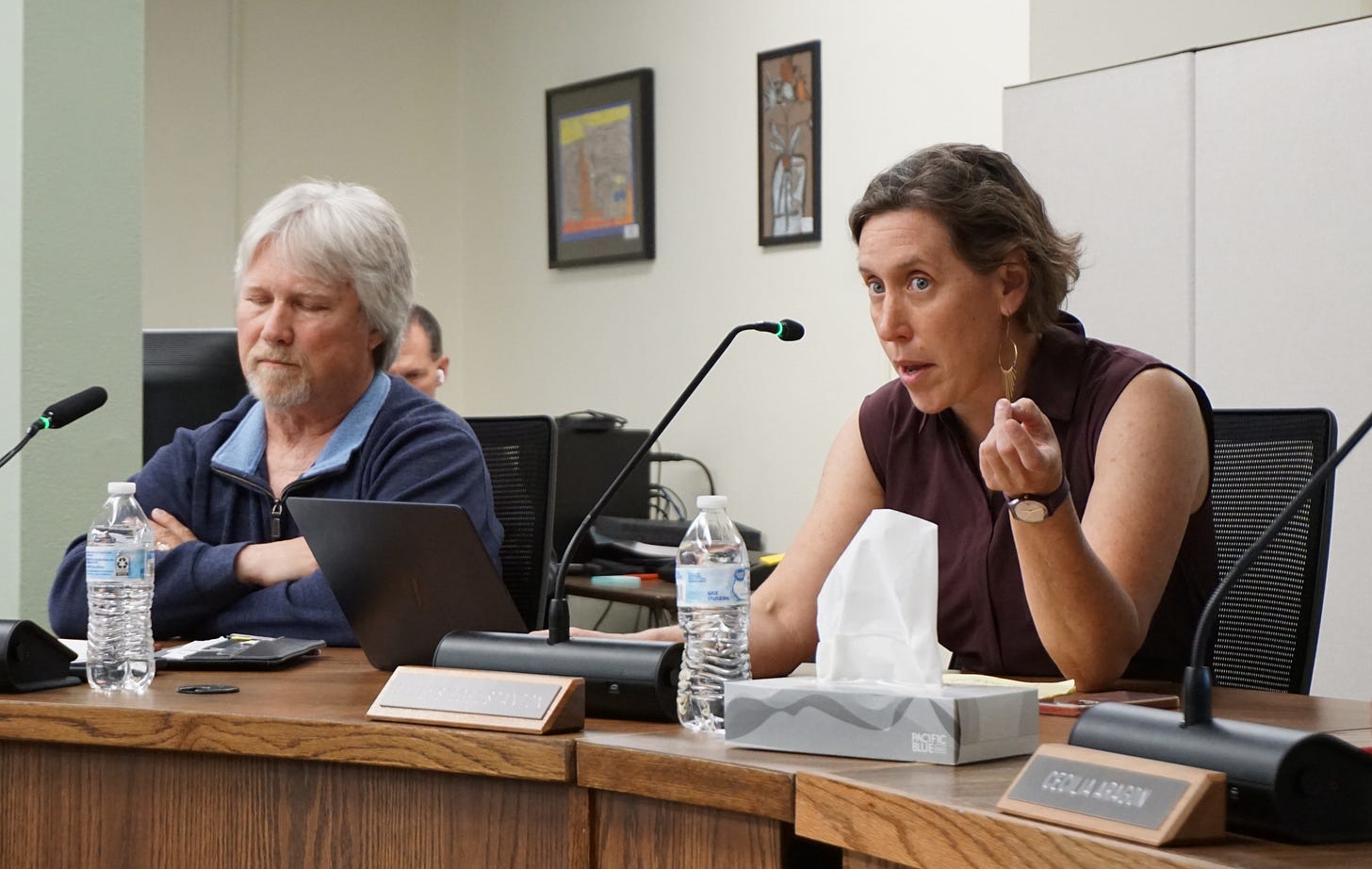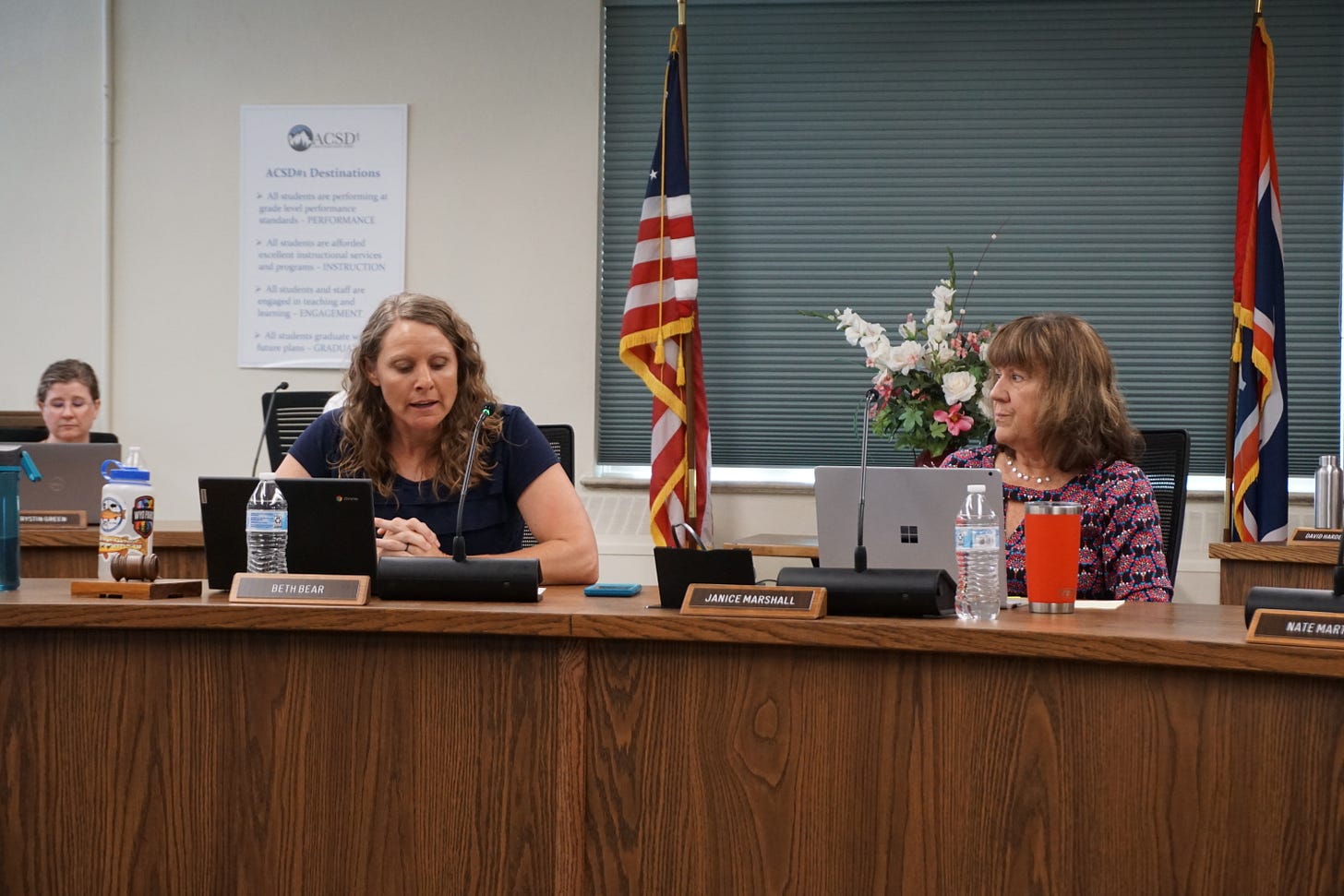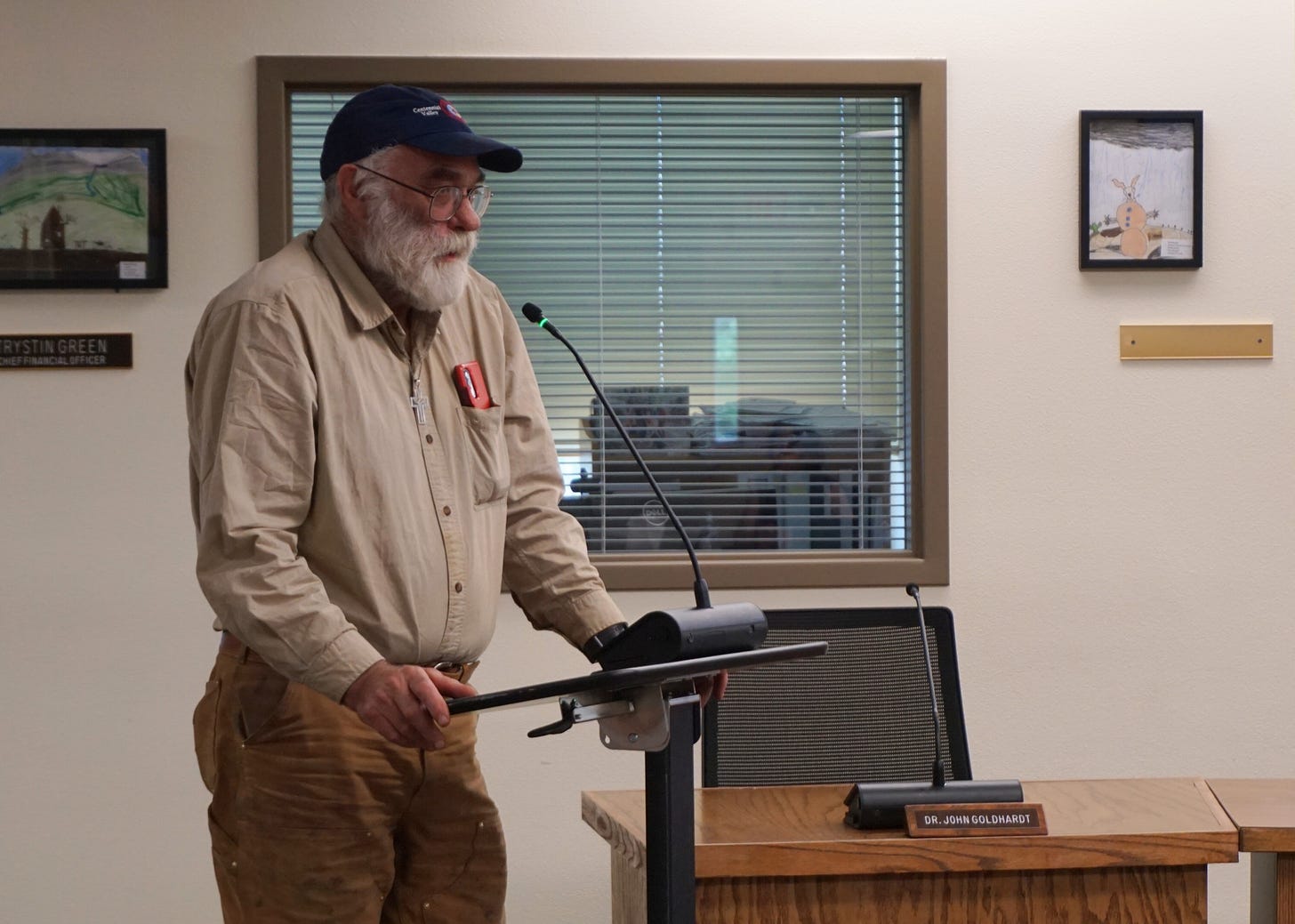New “parental rights” policy will force school counselors and teachers to out queer students
Fearing litigation for any other path, the Albany County School Board opted to follow the law Thursday, approving a policy several trustees view as endangering students and infringing on their rights.

The Albany County School Board approved a new “parental rights” policy Thursday which will force the district to share almost any information volunteered by students about their personal, social or home lives with their parents.
The policy, which is mandated by a new state law, requires districts to notify parents of any “changes” to a student’s “educational, physical, mental, or emotional health or well-being” — a definition that has been interpreted by supporters and detractors alike as including a student’s request to go by a different name or pronouns.
In essence, the policy will require the district to “out” gay and transgender students, even to unsupportive families. It’s a result championed by those generally opposed to LGBTQ+ rights or recognition and one feared by advocates for childrens’ mental health.
The new policy will also require parents to opt-in to almost all health screenings and obligate teachers to secure parental permission before providing instruction that addresses “sensitive topics related to sexual orientation and gender identity.”
During a special meeting Thursday — called to give the policy its third and final reading — Albany County School Board trustees took public comment before casting their final vote. Henry Anderson, a Laramie High School student preparing to start his senior year, told the board he knew people who would suffer because of this policy.
“We hear a lot about the rights of a parent, but what we don’t hear a lot is the rights of a student,” Andersen said. “If this is passed, this requirement of teachers to share confidential information with parents, I feel that it severely violates my rights as a student. I feel that it is very important that I am able to talk to teachers and that I am able to talk to counselors without my parents knowing — because I am old enough to make these decisions.”
The new state law, passed during the most recent legislative session, required school boards across the state to adopt such a policy by today, July 1. But there was some discussion among the local school board members about whether they should comply with the law.
Ultimately, however, the board passed the policy with a 5-3 vote. Trustees Cecilia Aragón, Alex Krassin and Emily Siegel-Stanton voted against its passage, while Trustee Nate Martin, who had opposed the policy during an earlier vote, was absent.
Board Chair Beth Bear and Trustees Steve Gosar, Janice Marshall, Carrie Murthy, and Kim Sorenson cast aye votes, though several made it clear their vote was not driven by support for the policy but rather the desire to avoid a lawsuit.
“I do worry, of course, that this adds a barrier — that students who need help, who need support, will not feel comfortable seeking that help from safe adults in their lives,” Trustee Murthy said. “At the same time, I think neglecting to adopt a policy that we are legally required to adopt invites a legal battle that could tie up our district resources when those district resources are sorely needed in other places.”
‘We will be putting kids in danger’
The policy makes exceptions to its mandatory reporting requirements for students living in abusive homes. But to make use of that exception, the district must be prepared and willing to report the case to the Wyoming Department of Family Services for review.
The law makes no exception for instances in which the district fears a family will kick a student out of the home or fears a family will otherwise mistreat the child in a way that falls short of legally recognizable abuse.
Ahead of the final vote Thursday, Trustee Krassin cited this as a major concern.
“I think there’s a lot of gray when we talk about abuse and neglect, and I don’t think there was enough consideration, on the side of our legislature when they passed this policy, around what that means,” she said. “For example … parents can do a lot of things that don’t fall under neglect and abuse that can be harmful to a child.”
Trustee Siegel-Stanton said the new policy will endanger the lives of Albany County’s queer youth by hindering students’ ability to access safe, confidential counseling or talk to other trusted adults outside their family.
“The history of suicide in the LGBT population is widespread and long documented when people are outed against their will,” Siegel-Stanton. “We will be putting kids in danger, and I don’t want to see ‘Stanton v. the State of Wyoming’ after a child’s suicide because they were told that they will be rejected by their community.”
Nationwide, queer youth are living through a mental health crisis — a crisis which is worse in places and communities where they are not accepted for who they are. Research shows affirmation can be life-saving, while rejection can be deadly. LGBTQ+ youth are four times more likely to attempt suicide than their peers and that risk rises significantly when those youth face parental rejection or other forms of discrimination or live in communities where their identity is not affirmed.
“These kids are real people,” Siegel-Stanton said. “These people are friends, they’re loyal, they have pets, they play sports, they love. They just want to be on this earth to pursue their highest potential and serve their community. We should be lucky that any of our kids step forward and say that this is who they are.”
But instead, Siegel-Stanton said, the state government is cracking down on diversity.
“In our Pledge of Allegiance, we talk about ‘liberty and justice for all,’ but we live in a nation that is obsessed with thinking about who gets that liberty and justice,” she said. “We’re obsessed with deciding who can drink out of what water fountain, who can marry who, who can have the rights and privileges of constitutional, federally approved marriage. And right now, we’re obsessed with people’s pronouns. We say, ‘liberty and justice for all’ — but not you, because your pronouns make me uncomfortable.”
Both Krassin and Siegel-Stanton are mental health professionals.
They were joined by Trustee Aragón in casting votes against the policy’s passage.
Avoiding a lawsuit
Even the trustees who voted in favor of the policy voiced their distaste for its provisions before casting the votes that ultimately passed it.
In addition to echoing the concerns raised by Krassin, Siegel-Stanton and Aragón, Trustee Murthy decried the administrative burden the policy would place on the district, calling it “a solution in search of a problem.”
“I think our district does an exceptional job already,” Murthy said. “Our current policies and procedures already address the issues really well. We don’t have a policy or practice of hiding things from parents, and I think it's so important for kids to have trusted relationships with safe adults.”
Trustees Sorenson and Marshall objected to the tight timeline the district was given to craft this policy, prepare for its fallout and add it to the books, but said the board should comply with the law.
“I feel like we do have an obligation to fulfill the legislation that was passed,” Marshall said.

Aragón asked what would happen if the board did refuse to pass the policy, in defiance of the law. Chief Human Resources Officer Nathan Cowper said such a move could result in litigation, citing an email with legal counsel.
That email notes that the new law does not lay out a specific penalty for failure to comply. But the law does require the board to pass a policy by July 1. Should the board fail to do that, the email argues, any citizen with standing could file a lawsuit for declaratory judgment and seek injunctive relief.
“The safest [bet], and the most appropriate course of action, is to implement the policy by July 1 as required,” writes Jordyn Surber of Coal Creek Law, a Cheyenne-based law firm. “Because July 1 has not come and gone yet, and no other District has been reprimanded for failure to comply/implement, we do not know what consequence may truly exist and I do not want ACSD1 to be the ‘example’ to all the remaining Districts in the state.”
For those looking to reverse or halt the law’s implementation, Board Chair Bear said the State Legislature is the appropriate place to have that fight.
“I really feel like this is an overreach by our legislature,” she said. “And I think if people are unhappy with this policy, that’s where you need to go with your complaints, because we are being forced into this, and we’re being forced into it on a really tight deadline.”
The only trustee who voiced even some support for the policy was Trustee Gosar, who said he agreed “wholeheartedly” with many of his colleague’s complaints.
“But then I also looked at it and thought, if it was one of my kids, that this could be an opportunity to create a positive dialogue with parents, to engage them,” Gosar said. “In my experience, there’s never been an issue with too much communication. There’s always been an issue with too little communication. And I think that when we exclude parents from this, we exclude a very valuable source for the kids and their development.”
Animating forces
However they voted, most trustees criticized the policy and the state law requiring it. But the supportive arguments that initially animated the legislation were present in the room Thursday in the form of public comments. Representing those arguments were two active members of the Albany County Republican Party: Sandi Rees and Mark Armstrong.
Rees, who helped to disrupt a board meeting in 2021 and ran for school board herself in 2022, alleged the district wants to indoctrinate children.
“[They are] mine to raise and rear, my children to impart my values and my morality upon — not school districts, not a teacher, not a high school with an agenda to push,” Rees said. “My children. Your job as a district and as teachers is to teach academics, to raise these children to be able to read and to write and to do math and science and grow up and be successful, contributing adults — not indoctrinated social justice warriors.”
Rees said parents always have a right to know what’s going on with their children.
“This is about parental rights, not LGBTQ or sexuality or politics or religion,” she said. “It’s about parents’ rights and districts that overstepped that.”
But both supporters and opponents of the “parental rights” bill have made it clear the new law is indeed about LGBTQ+ youth. Rees herself made that connection a moment later.
“Our legislature had to step up and create legislation to avoid a repeat of what’s happening in Sweetwater County, where a school is socially transitioning a child without letting her parents know,” Rees said. “We don’t want a repeat of that.”
Lawmakers cited the same Sweetwater situation, which involves an ongoing lawsuit, as they pushed to pass the “parental rights” bill.
“That’s why we’re here,” Sen. Bo Biteman (SD-21) said during a Joint Education Committee meeting last year.

During public comment Thursday, Armstrong used his three minutes to address a separate section of the policy — the section requiring teachers to secure parental permission before offering instruction on sexual orientation or gender identity.
Because this dictate is broad, the local policy includes some exceptions, such as allowing language teachers to offer instruction on gendered words in Spanish and French without first needing to send home a permission slip.
Armstrong accused the trustees of trying to subvert the law with some of these exceptions.
“The reason the law was written the way the law was written is so parental rights are protected,” he said.
Specifically, Armstrong took issue with “line three” and “line six.” Technically, lines three and six allow for the teaching of gendered words in language courses and “classroom references to a person’s family” — but it’s likely Armstrong was basing his comments on an earlier draft of the policy, for which those lines offer different exemptions.
Lines three and six of that earlier draft allow teachers to handle “student generated homework” and allow the district to offer “library books, displays and materials” without having to secure prior explicit permission from parents.
Armstrong objected to these lines, pondering whether they would allow a school library to expose second graders to the work of Henri de Toulouse-Lautrec.
“That would be inappropriate,” Armstrong said. “We have brain development that is changed — altered — when children are exposed to things too early. So Toulouse-Lautrec in high school? Okay. I hope you all know who Toulouse-Lautrec is, a Danish artist.”
Toulouse-Lautrec was a French artist, a post-Impressionist fascinated by Parisian nightlife, whose work served to humanize the prostitutes of his city. Some of these paintings and sketches depict their female subjects in partial states of undress, but never engaged in sex acts. Toulouse-Lautrec is perhaps even more famous for his posters — examples of which, or references to which, most readers will have likely encountered.
Armstrong said the district should focus on improving student outcomes rather than advancing “culture war” topics.
“Let’s go back to the fundamentals,” Armstrong said. “Make sure our kids can read and write and stop the indoctrination. Let parents raise their kids.”




This is dangerous. Students will suffer. Such a shame.